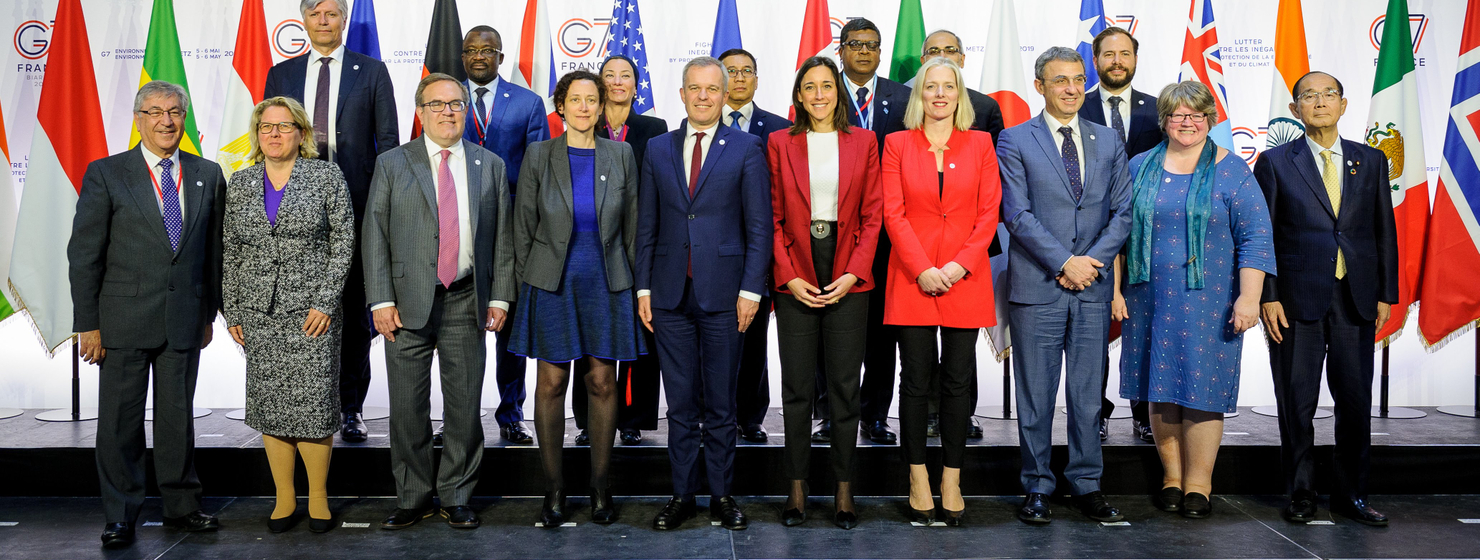While scientific warnings on the erosion of biodiversity and climate change are growing, on 5 and 6 May France convened the G7 Ministers in charge of the environment and several representatives of invited countries to discuss fighting inequality through the protection of biodiversity and the climate. At this ministerial meeting, tangible commitments were made to fight the erosion of biodiversity and climate change.
In order for this meeting of G7 Ministers in charge of the environment to reflect the many realities of climate change and to result in stepping up international action to address environmental challenges, nine countries were invited to participate and commit themselves as G7 Member States do.
Also, aware of the importance of civil society, France wanted this ministerial to greatly involve NGOs, companies and other community stakeholders. They worked alongside the delegations to tackle the challenge posed by climate disruptions and environmental threats.
One of the G7 Environment Meeting challenges was to step up action on biodiversity challenges so that it is on a par with action on climate. At this ministerial meeting, a great deal of progress was made. For two days, countries worked on four issues:
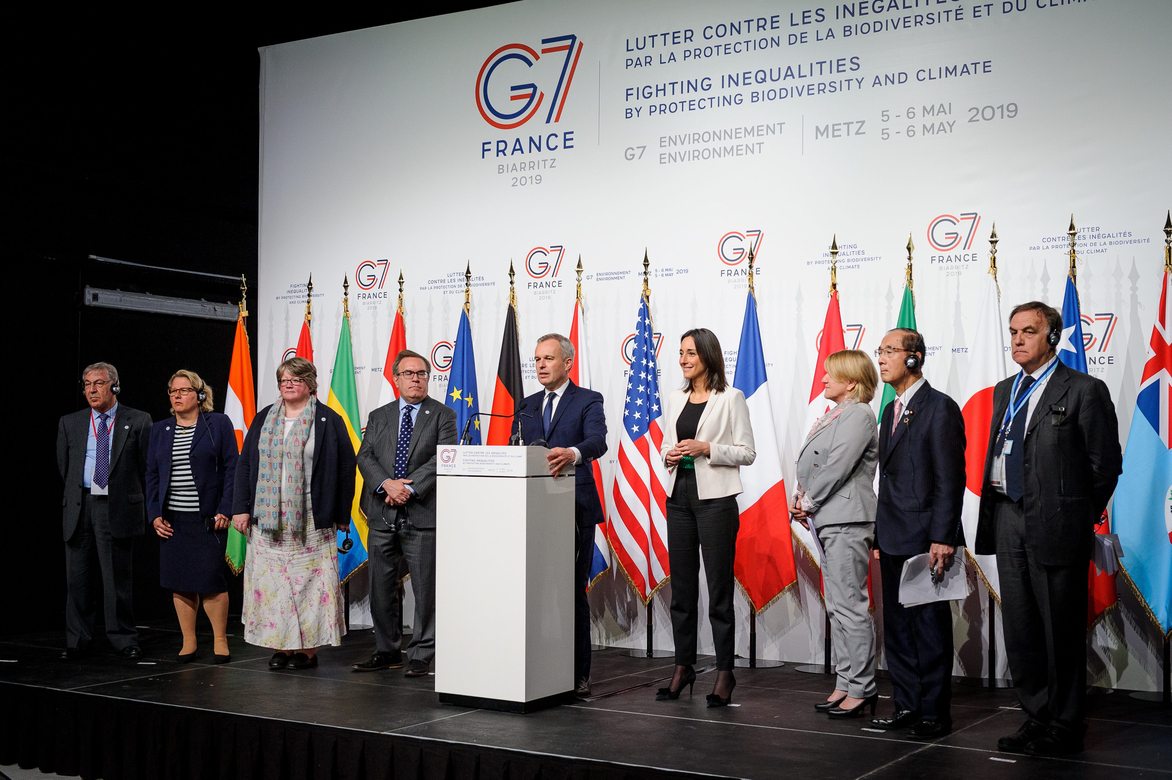
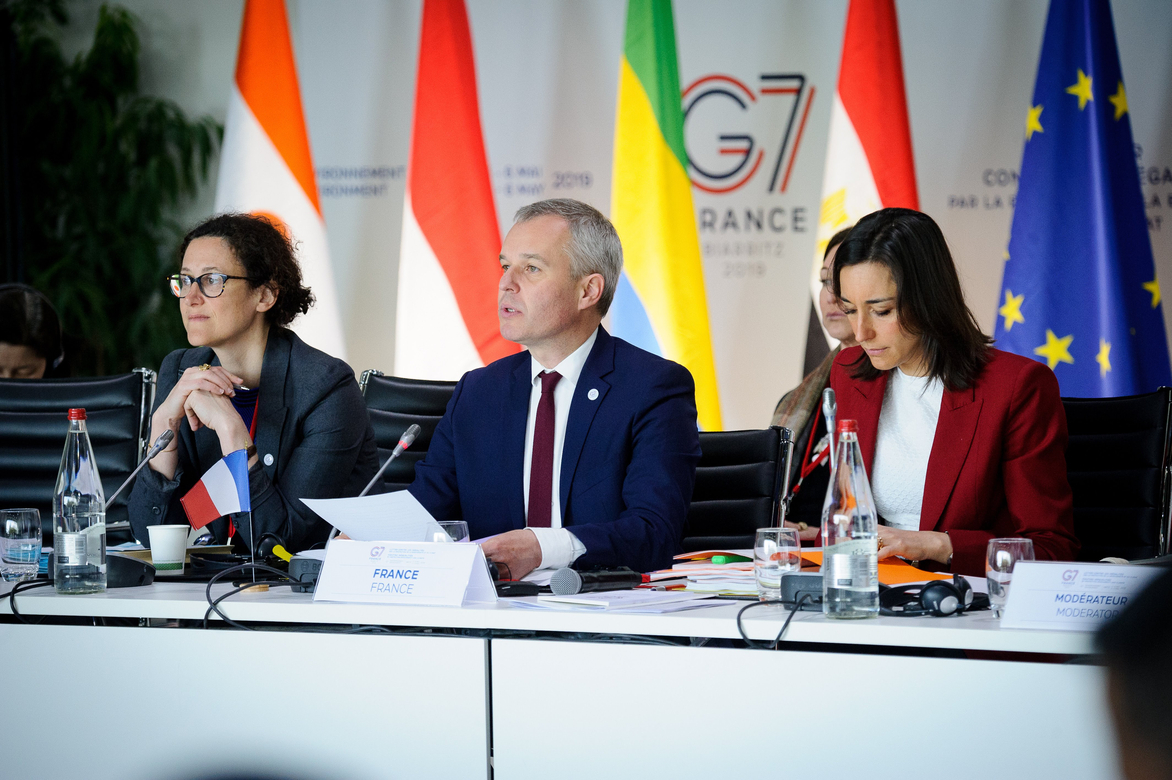
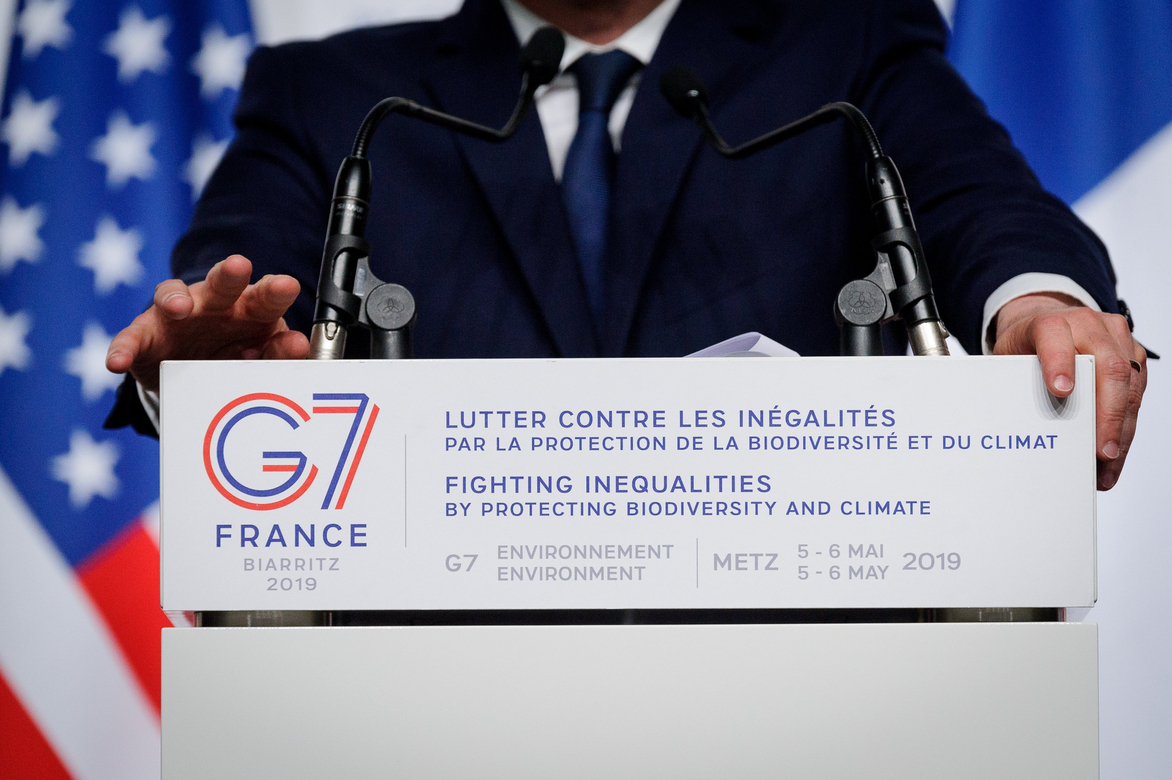
1. Inequality and an inclusive ecological transition
As fighting inequalities is a priority of France’s G7 Presidency, participants at this ministerial meeting worked on inequalities and an inclusive ecological transition, with a focus on gender equality. The Gender Responsive Environmental Action & Training (G.R.E.A.T.) initiative was launched jointly by Canada, Egypt, the European Union, France, Gabon, Germany, Indonesia, Italy, Japan, Mexico, Niger, Norway and the United Kingdom – in order to rally the support of public and private stakeholders for gender equality given the consequences of the degradation of the environment.
An initiative focused on sustainable waste management was also presented and garnered support from Canada, Egypt, the European Union, France, Germany, Indonesia, Japan, Niger, Norway, the United Kingdom and the United States. The goal: to promote an inclusive transition and sustainable waste management while limiting impacts on vulnerable populations.
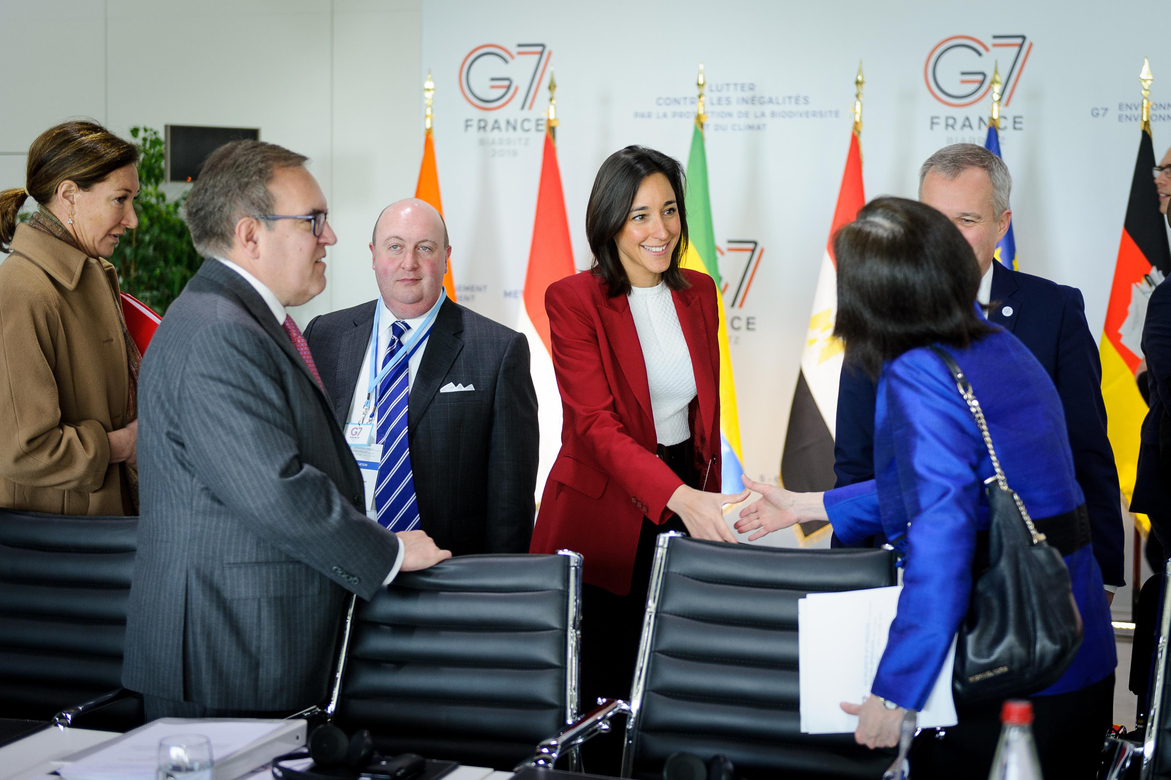
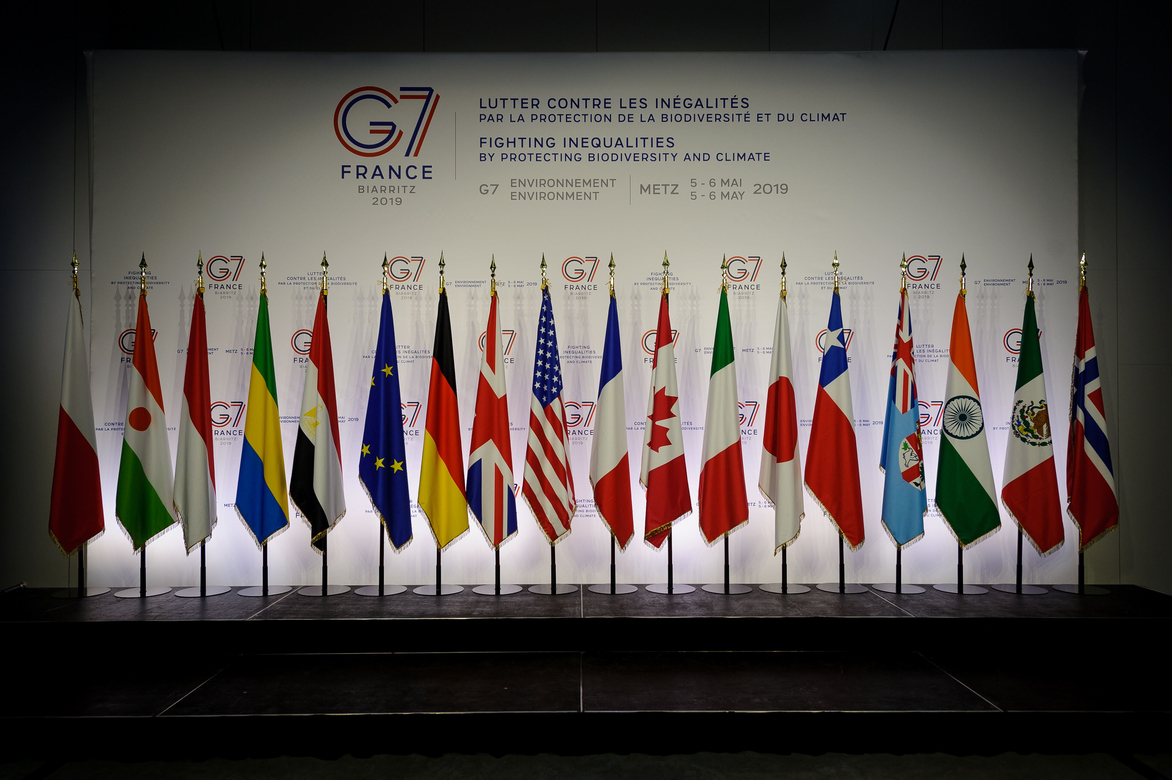

2. Scientific warnings and international action on biodiversity and the climate
In conformity with the French President’s commitment, the G7 Ministers in charge of the environment aim to enhance the importance attached to the issue of biodiversity erosion on the international stage through to 2020. The event was held alongside the 7th Plenary of the Intergovernmental Science-Policy Platform on Biodiversity and Ecosystem Services (IPBES) on 29 April to 4 May 2019 in Paris. While IPBES experts warned of the acceleration of biodiversity erosion, the Environment Ministers adopted the Metz Charter on Biodiversity in which the countries pledge in concrete terms to strengthen their commitments to better protect and preserve biodiversity.
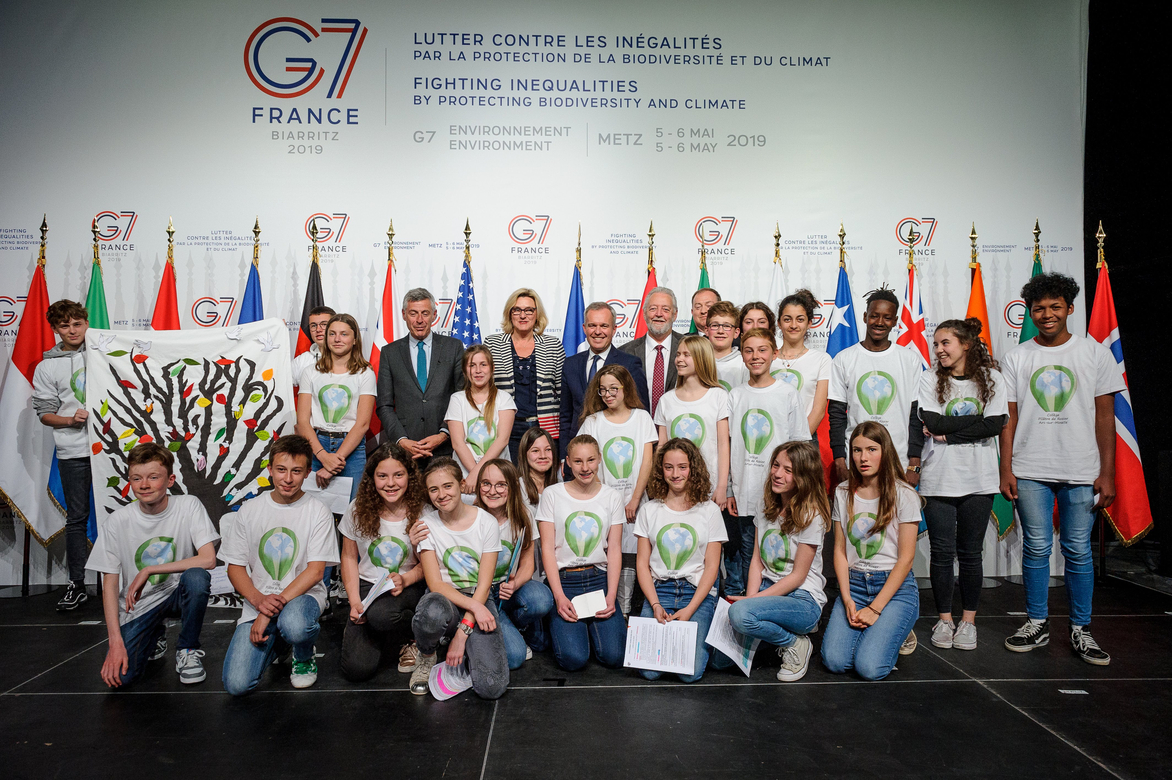
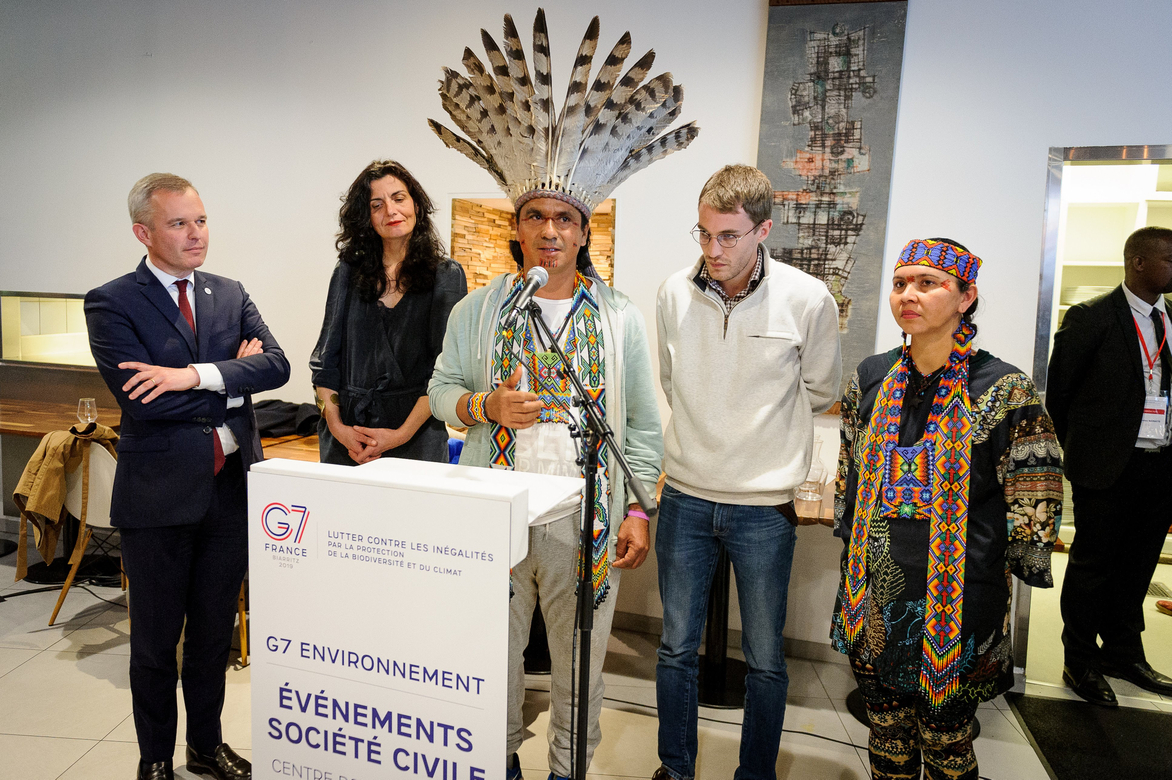
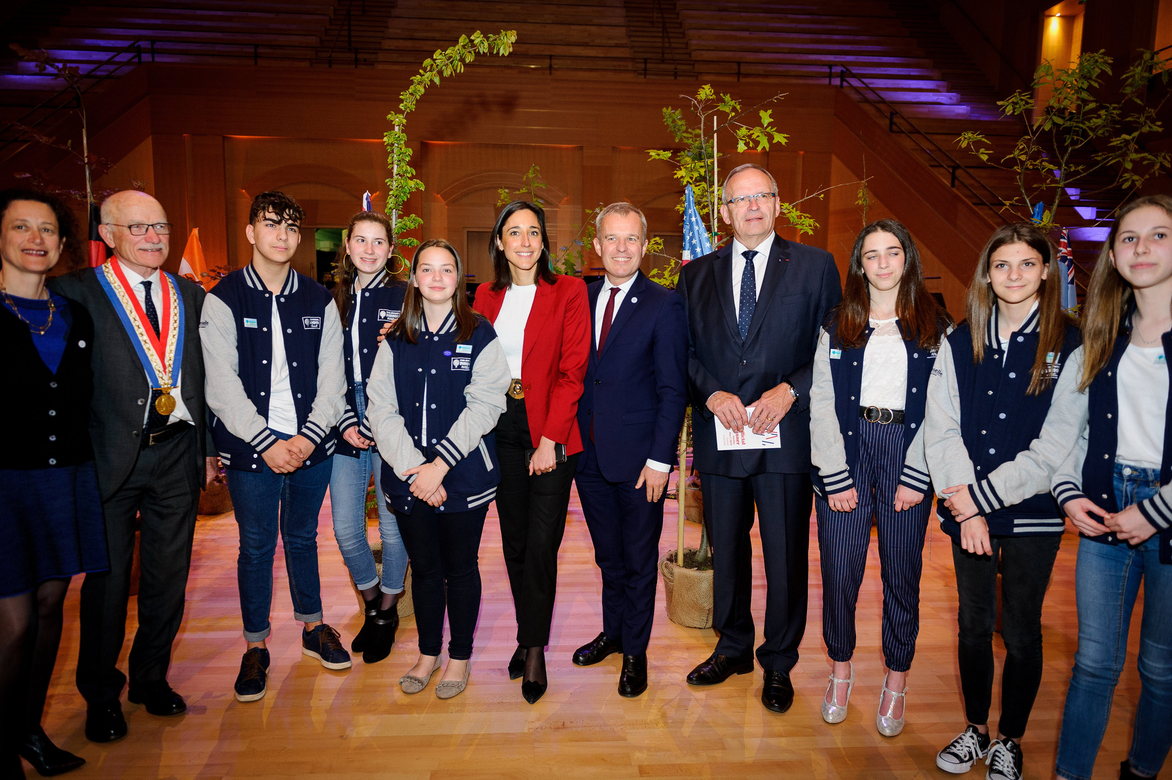
3. Tangible solutions for biodiversity and the climate
The countries participating in the G7 Environment Meeting also worked on tangible solutions to address major pressures on biodiversity including:
- The initiative aiming to put a stop to deforestation with sustainable agricultural supply chains whose declaration was supported by Canada, the European Union, France, Germany, Italy, Norway and the United Kingdom. The countries reaffirmed the need to improve the sustainability of supply chains for raw agricultural materials in order to stop deforestation that they cause.
- Support for the Great Apes Survival Partnership (GRASP) that Canada and India decided to join, contributing to the efforts of other partners already working in GRASP, including the European Union, France, Gabon, Germany, Indonesia, Norway, the United Kingdom and the United States. The objective is not only to preserve this endangered animal species but also to protect their habitat, by rallying support from the private sector to develop sustainable production and consumption patterns.
- The International Coral Reef Initiative (ICRI), a unique partnership mobilizing the stakeholders involved and improving coral reef management practices, and sharing and exchanging knowledge about these ecosystems. Germany and Canada announced their intention to join the ICRI while Norway and India reaffirmed their commitment alongside France, Japan, the United Kingdom and the United States as well as Egypt, the Fiji Islands, India, Indonesia and Mexico, which are already members.
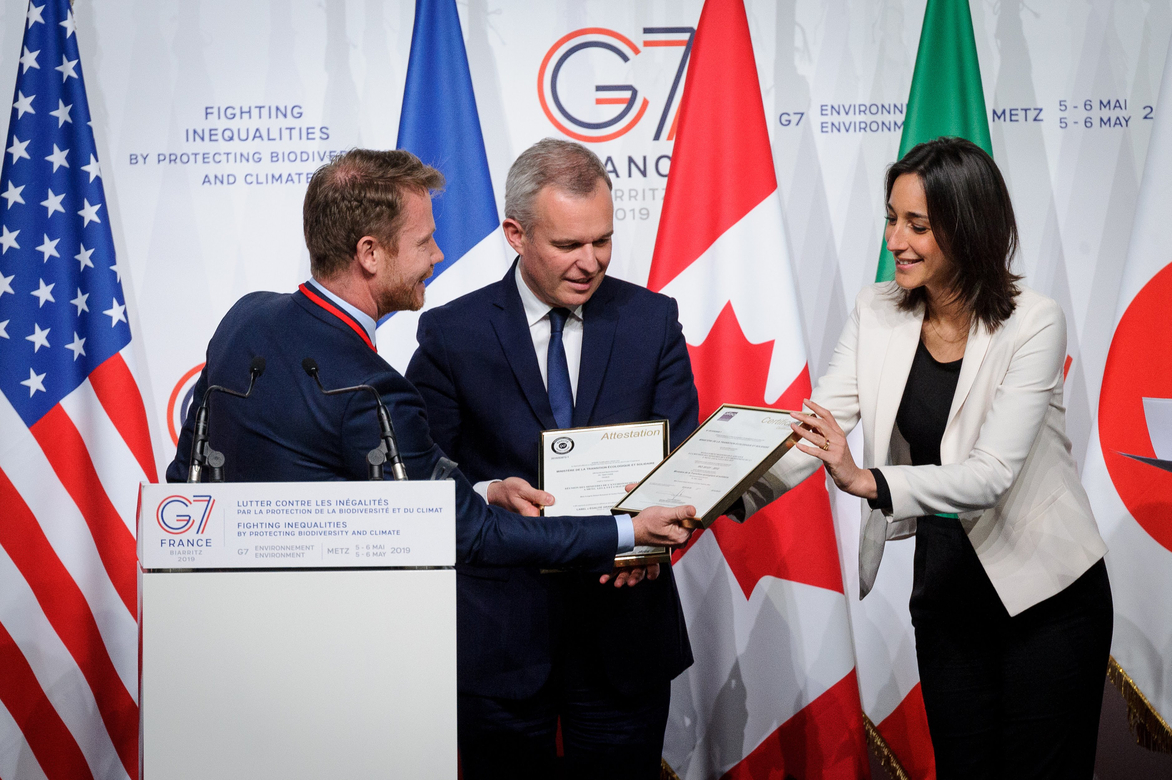
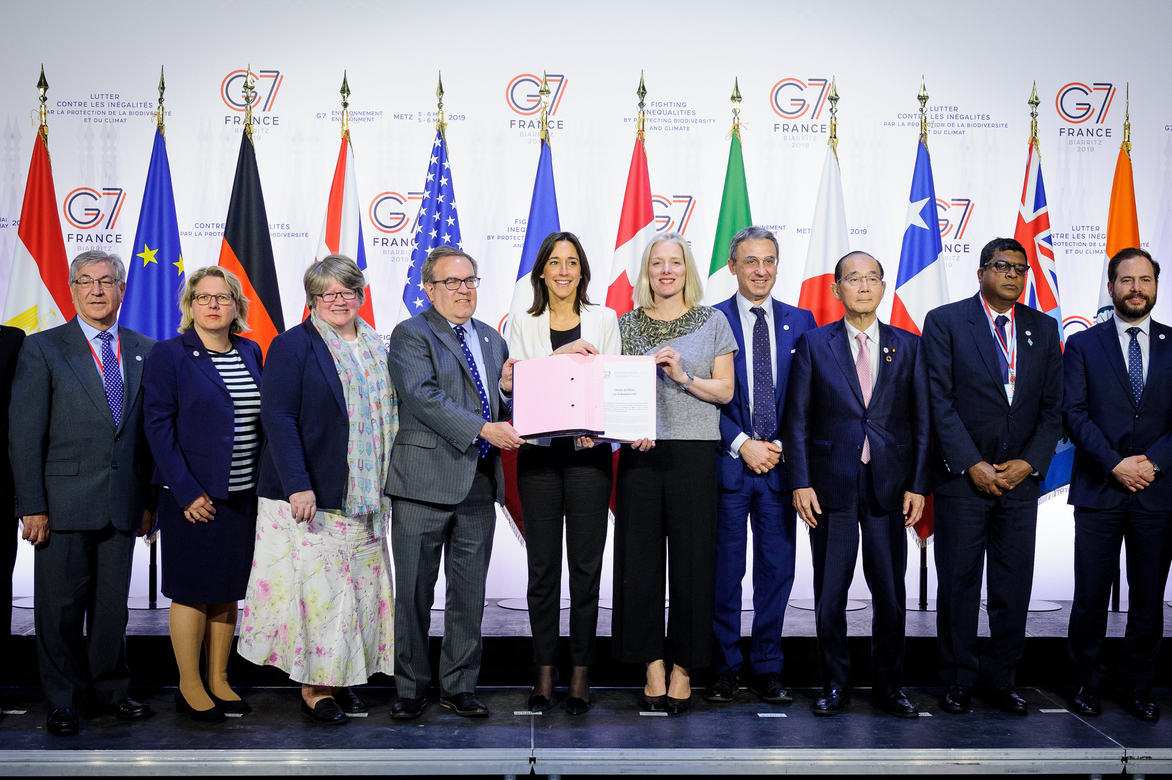
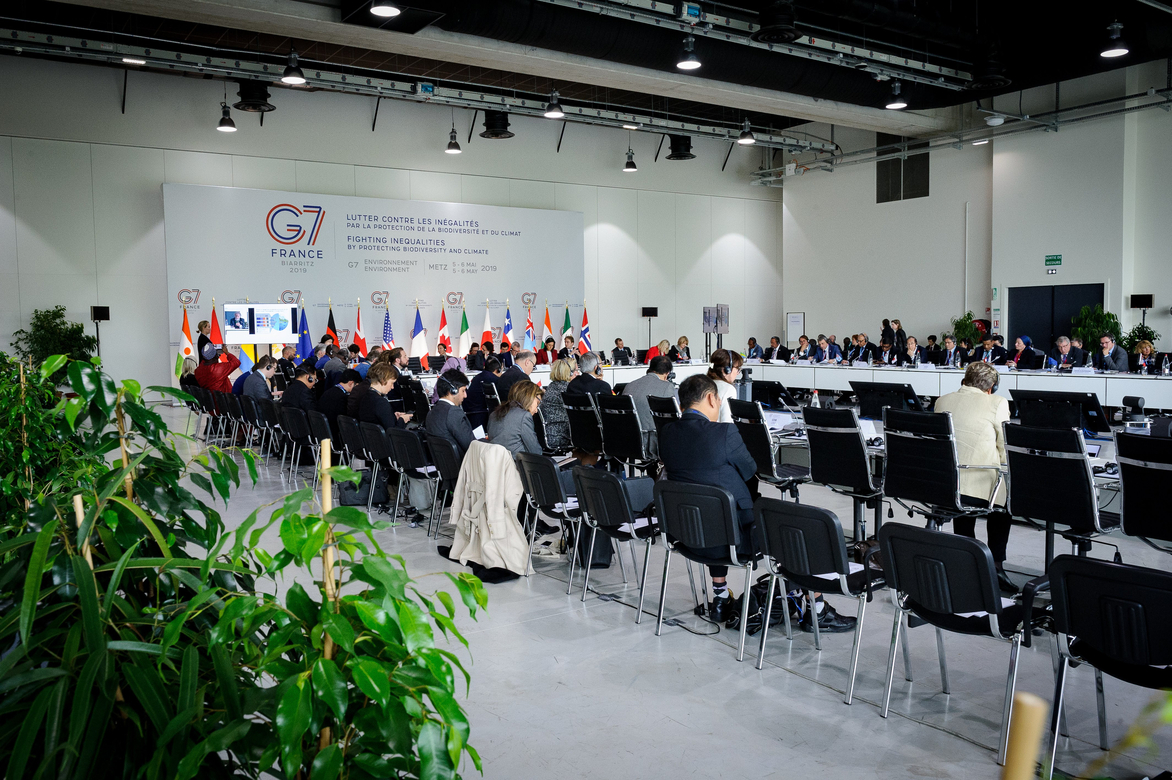
4. Finance for the preservation of biodiversity
The G7 Environment Meeting made it possible to lay the groundwork for the emergence of genuine biodiversity finance, similar to climate finance. Two reports requested by France’s G7 Presidency were also presented:
- The OECD presented the report “Biodiversity: Finance and the Economic and Business Case for Action”, on the economic interest of preserving biodiversity and quantifying dedicated financial flows and the measurability of different pressures on biodiversity.
- The WWF, in collaboration with AXA, produced a report entitled “Into the Wild: Integrating Nature into Investment Strategies” which aims to incorporate biodiversity risks into investment decisions.
- Lastly, Canada put forward the Ocean Risk and Resilience Action Alliance (ORRAA), which encourages countries to address risks and ocean resilience. All of the G7 members decided to join the Alliance and other countries are expected to join in the near future.
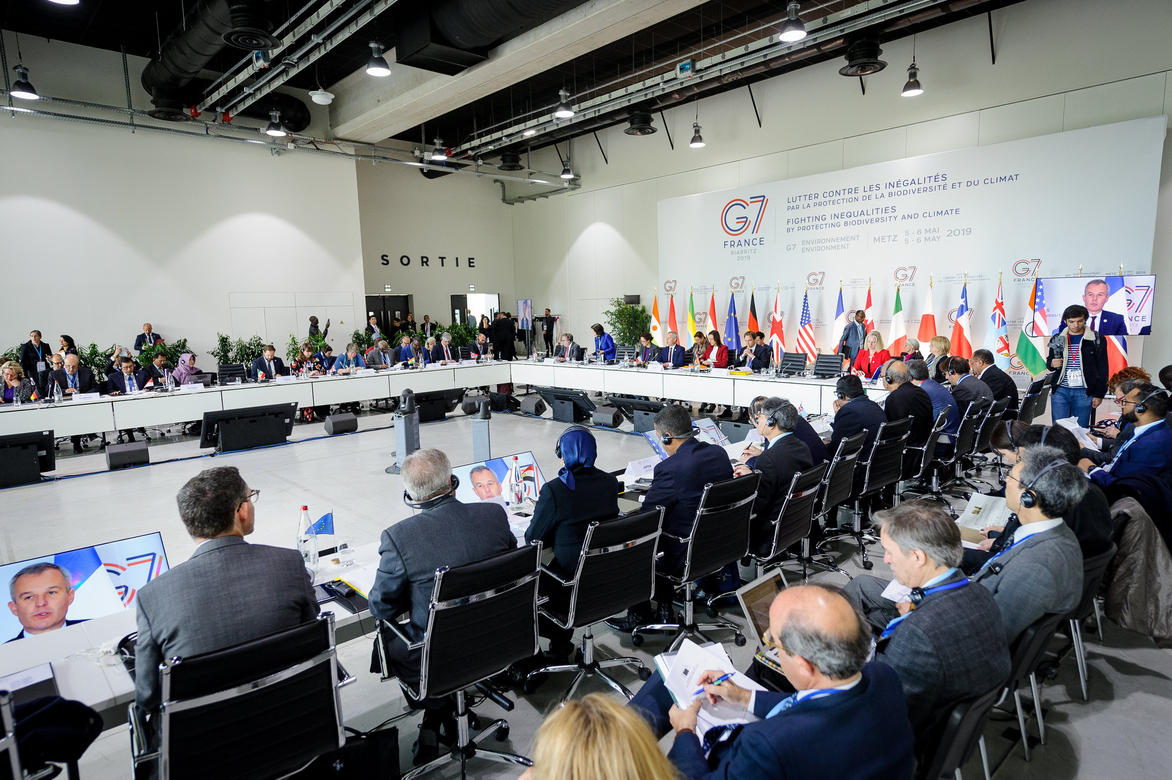
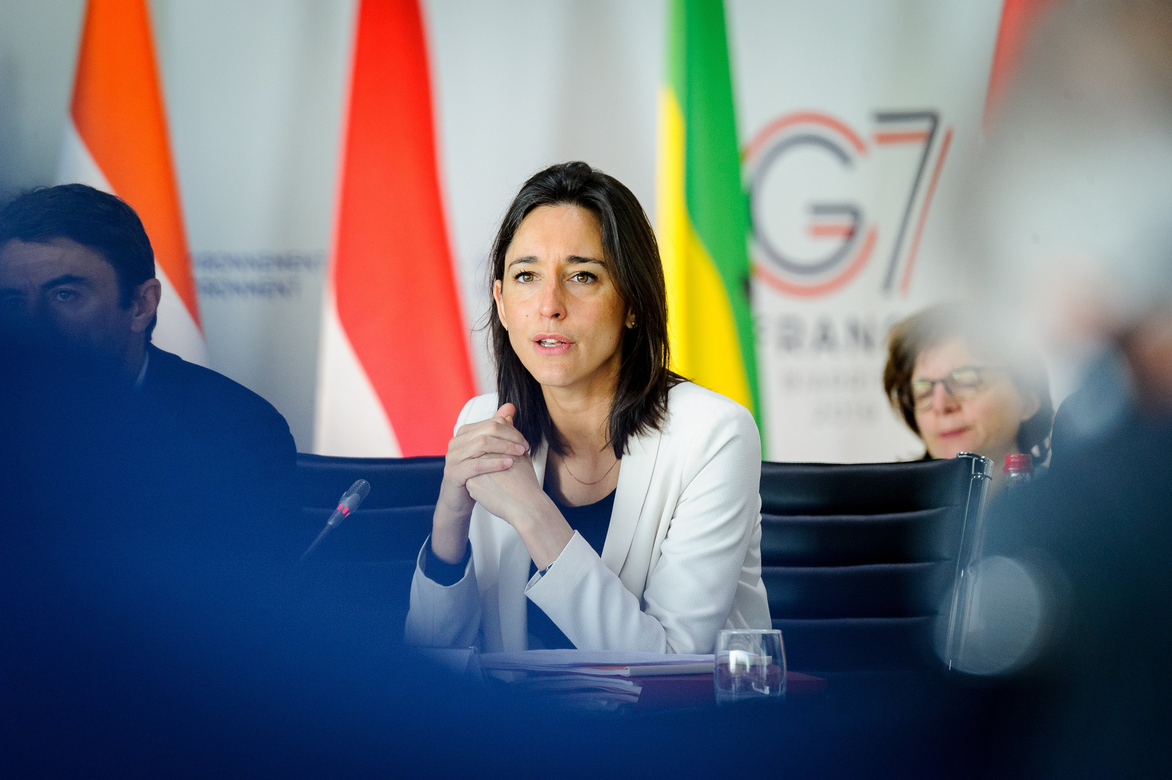
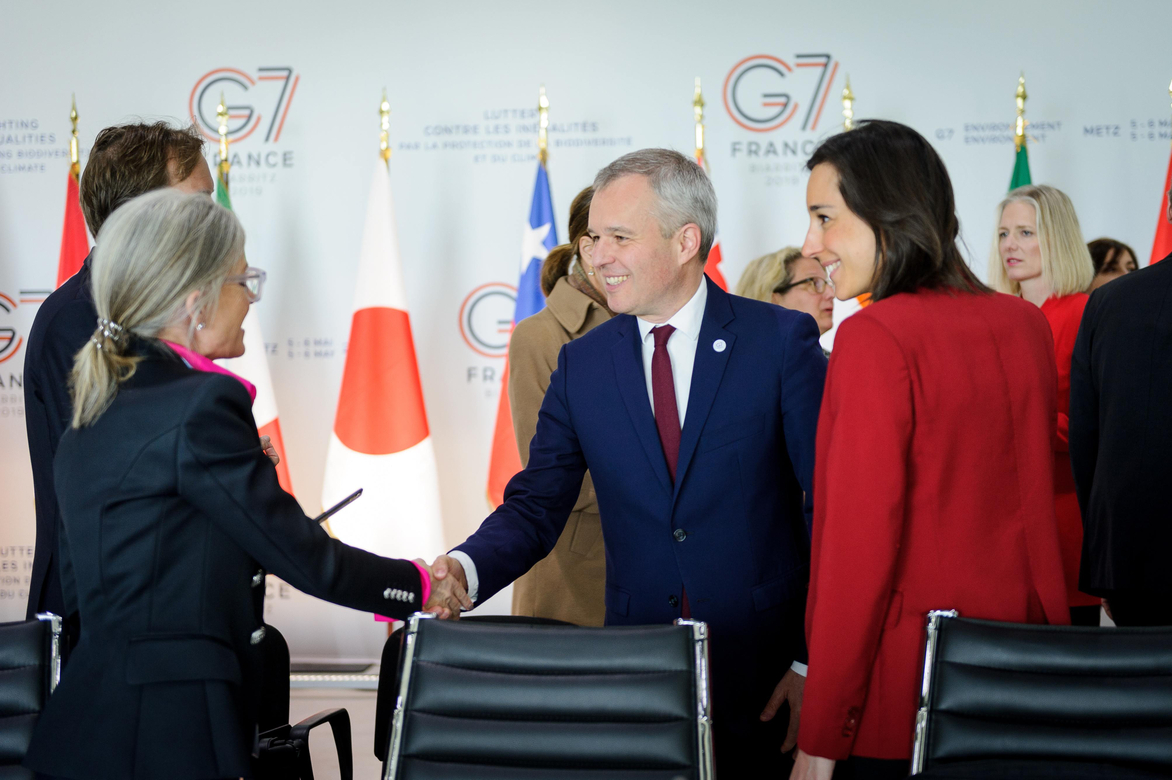
This ministerial meeting, which increased action on critical issues, is part of the larger agenda of France’s G7 Presidency and international meetings to come, in a crucial period with regard to the preservation of our planet.
It is an important indicator of France’s aim to act for the climate and biodiversity and to bring together partners to meet the challenge the entire international community is facing.
Find out the final communiqué and all the other documents adopted by the G7 Environment ministers on 5 and 6 May.
